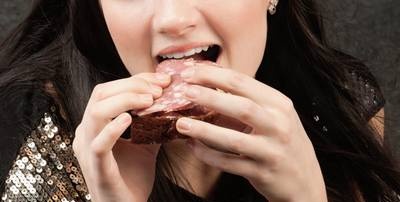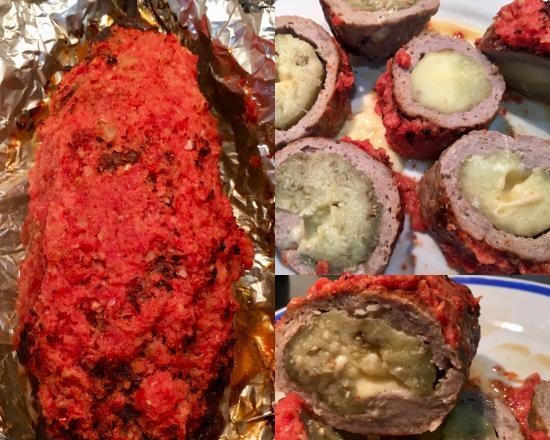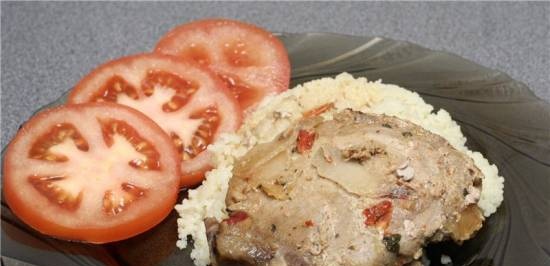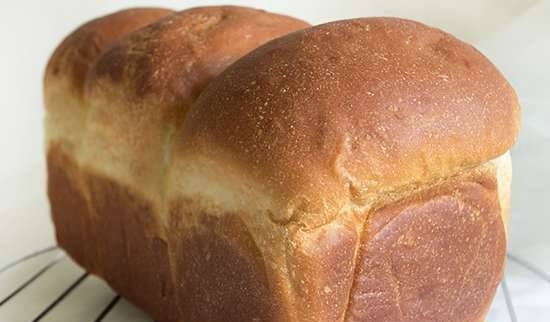|
 Today, when we have such a frantic pace of life and time is sorely lacking for everyone, we try to do everything as quickly as possible. A few years ago, everyday things, such as cleaning, washing, cooking - took a lot of our time. And everyone dreamed of something that could do all these works, keeping the time spent on them to a minimum. Today, when we have such a frantic pace of life and time is sorely lacking for everyone, we try to do everything as quickly as possible. A few years ago, everyday things, such as cleaning, washing, cooking - took a lot of our time. And everyone dreamed of something that could do all these works, keeping the time spent on them to a minimum.
Eat fast - live fast
Therefore, at last, after the collapse of the Soviet system, "peace" burst into our country like the wind through an open door. In a short time, the achievements of European countries and, to a greater extent, the United States penetrated and took root in our country. And now we have super washing powders that almost wash themselves if we use automatic washing machines. There are detergents for cleaning any surfaces that can easily remove dirt with minimal effort and time, and, of course, food that has already been prepared for us - everything that needs to be warmed up or just open the package and use it right away.
And it is precisely such fast and convenient food that will become the object of research. When the shelves of our stores were filled with foreign and later domestic drinks, chips, ketchups, mayonnaises, various semi-finished products, etc., it never occurred to us to ask about their composition. Delicious - damn it! What difference does it make of what it is made of?
On the other hand, the hungry post-Soviet people with manic pleasure ate everything that came to us "from there", because it is so nice to feel "cool", drinking Coca-Cola and eating it with "Bush's legs" chips or a kind of hamburger, which is generously sprinkled with mayonnaise and ketchup. We like the miracle milk, which can stand in the refrigerator for a month and not spoil, it is convenient for us to defrost semi-finished products, add seasonings to soups, after which, even without a hint of meat, it tastes like a fat chicken cooked there.
And now, the people finally, almost twenty years later, ate all this. Nowadays, supermarkets that are already familiar to us are packed to the brim with various products available to consumers around the clock. Each individual product is represented by dozens of different companies that do not get tired of talking in commercials about the exclusive usefulness of their product. However, despite the bright advertising, people began to feel that something was still wrong with these seemingly ideal carbonated drinks, sauces, ketchups, and seasonings. After drinking almost any carbonated drink, instead of quenching our thirst, we are even more thirsty. And all because of aspartame (E951). At 300 ° C, this substance begins to decompose into methyl alcohol (methanol) and formaldehyde, which is a carcinogen. After another feast with salads, as always seasoned with mayonnaise, we feel an unpleasant heaviness. We run to the store for healthy yogurt or kefir (which has a shelf life of at least six months) to improve the intestinal microflora, but we are not getting any better. Why? We were sure of the usefulness of these products? This is because stabilizers and thickeners are almost always present in mayonnaise and yoghurts.
 How do we know what we are consuming? And now the wise people finally looked at the composition of the products. And it turned out that without a chemist's diploma there is no way to figure it out. The first few words are clear to us, and after them there are unknown names - glutamates, nitrates, unknown marks - E202, E415, E385 and so on. And what it is, until recently, no one knew. Recently TV shows, various articles on the Internet and the press have appeared that tell about these mysterious E, and most importantly, it became known that most of these incomprehensible names are artificial substances that are harmful to our body. With horror, we began to realize that "not everything is gold that glitters."A short list is as follows: E100-182 - dyes, E200-299 - preservatives, E300-399 - antioxidants, Е400-499 - stabilizers. How do we know what we are consuming? And now the wise people finally looked at the composition of the products. And it turned out that without a chemist's diploma there is no way to figure it out. The first few words are clear to us, and after them there are unknown names - glutamates, nitrates, unknown marks - E202, E415, E385 and so on. And what it is, until recently, no one knew. Recently TV shows, various articles on the Internet and the press have appeared that tell about these mysterious E, and most importantly, it became known that most of these incomprehensible names are artificial substances that are harmful to our body. With horror, we began to realize that "not everything is gold that glitters."A short list is as follows: E100-182 - dyes, E200-299 - preservatives, E300-399 - antioxidants, Е400-499 - stabilizers.
Unknown chemical names and the letter E, next to which is a digital code, were first seen on food products back in the 90s in imported products. Such a labeling appeared in 1953, when Europe adopted a unified labeling system for food additives, which later, in 1978, was adopted in the USSR. Previously, the names of these chemicals were written in full on product labels, but they took up so much space that in 1953 in Europe it was decided to replace the full names of these substances with the letter E (from Europe) with numerical codes identified in accordance with the International Classification System (INS ).
Of course, we receive products that should not contain any additives in composition, but they are there, for example, in mineral water. Due to the presence of unnatural substances in our products in the form of food additives, the diseases of the gastrointestinal tract have become younger, dysbiosis, allergic reactions in children have become commonplace. These supplements are not toxic, but almost all of them are allergenic. I would like to note that you should not trust assurances that there are no food additives in certain products. To find out, one has only to look at the shelf life, and if it is more than three months, then there are definitely preservatives there. Moreover, the influence of such hidden additives is unknown, although, judging by the fact that the manufacturer "forgot" to indicate them, their usefulness is doubtful. Among the additives, dyes and preservatives are considered dangerous. Thickeners and stabilizers should be less fearful, although they are also of little benefit. If SES assures that there are only approved additives in the products - this is so, but the fact that even they are allergens and violate the microflora of the body is also an indisputable fact.
Although there are additives that are approved for use in food, in particular, in soft drinks, however, doctors note that their frequent use can damage the liver. Kvass, still or slightly carbonated mineral waters, green tea are useful for health. However, if you do not want to give up sweet water, then give preference to waters with natural dyes. And it should be remembered: the richer the color of the drink, the more harmful its effect on the liver and pancreas.
It should also be noted that the more E-additives in one product, the more dangerous it can be for us, even if each component separately is safe. Their joint stay has not been studied enough, so you should be careful. To tell the truth, in order to be safe, you need to check everything yourself. However, unlike the already experienced Europeans and Americans, we have not yet reached the point where the consumer carefully examines its composition before buying this or that product. And it should.
Although, on the other hand, it will take a little more time than we are used to to analyze each product for the content of E-supplements and determine which ones are safe. And the shopping trip will turn into a lecture on chemistry, moreover, from the entire assortment of the presented goods, most will turn out to be dangerous. Experts advise to write down the entire spectrum of E-supplements in a notebook and go shopping with it. Agree, the prospect is not pleasant.
However, it is worth spending a little more time studying the composition of the product. Rinse exotic fruits well with water before eating, because they are treated with biphenyl (E280) and orthophenylphenol (E231) to protect them from mold.
Inna Ivolgina
|
 Today, when we have such a frantic pace of life and time is sorely lacking for everyone, we try to do everything as quickly as possible. A few years ago, everyday things, such as cleaning, washing, cooking - took a lot of our time. And everyone dreamed of something that could do all these works, keeping the time spent on them to a minimum.
Today, when we have such a frantic pace of life and time is sorely lacking for everyone, we try to do everything as quickly as possible. A few years ago, everyday things, such as cleaning, washing, cooking - took a lot of our time. And everyone dreamed of something that could do all these works, keeping the time spent on them to a minimum.





